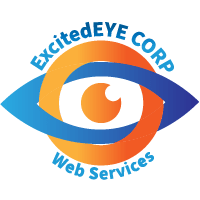
Is your website being visited? Are you struggling to find ways of attracting site visitors?
For website owners who have not considered optimization, understanding its advantages and gauging the investment required are crucial steps to the online journey for business owners these days.
It’s important for website owners to understand the benefits of optimizing a website and to weigh the costs and benefits of investing in optimization before deciding whether or not to pursue it.
Not all website owners want to optimize their websites. Some website owners may not see the value in investing time and resources into optimization and may not be aware of the benefits it can bring. Other website owners don’t have the technical knowledge, time to learn, or resources to optimize their websites.
Additionally, some website owners may not be interested in attracting a large amount of traffic to their website and may be content with a smaller, niche audience. In this case, they may not see the need to optimize their website for search engines or to improve its visibility.
Comparatively, many website owners, especially those who are running competitive online businesses or e-commerce websites are constantly looking to attract more customers and increase their revenue. Unquestionably, for these business owners, optimizing their website is crucial to reach a much broader audience, while simultaneously, improving their search engine rankings, and online brand presence.
Options for Optimizing a Website
Specifically, optimizing websites will involve delivering multiple variables for key information about the page and business. Thereafter, several primary elements will improve its search performance along with the user’s experience.
Beginning with:
-
Content Optimization
-
- Writing high-quality, relevant, and engaging content optimized for search engines and users.
- Utilizing relevant keywords throughout the content.
- Ensuring that the website is easy to navigate and that all pages are organized in a logical and consistent manner.
- Including meta tags and header tags to help search engines understand the content of the page.
-
Technical Optimization
-
- Ensuring that the website is mobile-friendly and responsive.
- Optimizing the website’s loading speed by compressing images, minifying code, and using a content delivery network (CDN).
- Improving the website’s accessibility for users with disabilities.
- Making sure that the website is secure by using HTTPS.
-
Link Building and Promotion
-
- Building backlinks to the website from other reputable websites.
- Utilizing social media and other online platforms to promote the website and its content.
- Submitting the website to relevant directories and search engines.
- Creating and promoting content that is likely to be shared by others.
-
Analytics and Tracking
-
- Setting up and monitoring analytics tools such as Google Analytics to track website traffic, bounce rate, and other important metrics.
- Using heatmap tools to understand how users interact with the website.
- Continuously analyzing data and making changes to the website to improve its performance.
As has been noted above, a website can be optimized to improve its search engine rankings, attract more visitors, and provide a better user experience. Contrarily, there are also several pitfalls to optimizing a website that should be avoided in order to confirm the best possible results.
Pitfalls to Website Optimization?
Some of the most common pitfalls include the following:
-
Keyword stuffing
- Overusing keywords in content and meta tags can be seen as spammy by search engines and may lead to penalties or lower rankings. Usually, if you are going over a 3% keyword density rate, you are spammy.
-
Ignoring user experience
- Focusing too much on search engine optimization (SEO) and neglecting user experience can lead to a website that is difficult to navigate or use. This results in a high bounce rate and lower engagement and conversion rates. It’s a fine line whether to focus on the search engine optimization rather than the conversion rate optimization scores. With experience and lots of a/b testing, you will eventually know the answers. ExcitedEYE does.
-
Not using analytics.
- Not tracking and analyzing website data can make it impossible to understand how the website is performing and what changes need to be made to improve it. Analytics and tracking are critical to all development tasks, how else will you know where your traffic is coming from and what keywords your site found with? This is the first step in EVERY website launch ExcitedEYE performs.
-
Not following guidelines.
- Search engines have rules and guidelines in place for their website optimization users and developers. Not following them will result in penalties, lower rankings, or removal.
-
Not updating the website.
- Websites need to be updated regularly. Both content and technical optimization should be updated to stay relevant and maintain good search engine rankings.
-
Negative SEO
- Negative SEO is the practice of using unethical methods to harm the search engine rankings of competitor websites. This can include buying links, generating fake traffic, or using other manipulative tactics. Negative SEO is harmful and will most definitely lead to penalties from search engines.
Consequently, it’s important to remember that by avoiding these pitfalls and focusing on user experience, content quality, and proper optimization techniques, a website can achieve better search engine rankings and a higher level of engagement from users. Furthermore, ExcitedEYE Web Services has been optimizing websites (both static and dynamic) for the last couple of decades. Therefore with our experience and know-how, we can help optimize your website for search engines or work on optimizing your conversion rate. Correspondingly, we will prioritize your website updates giving the owners the best bang for their buck efficiently and effectively.

Leave a Reply
You must be logged in to post a comment.